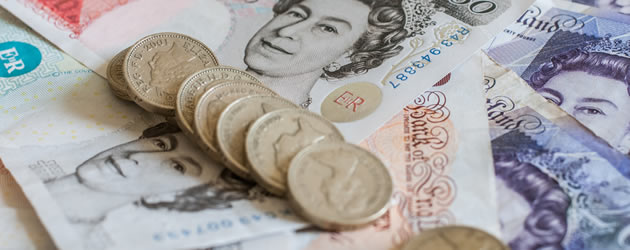GBP/EUR Conversion Rate Predicted to Soften after UK Construction Output Slowed
The Pound Sterling to Euro (GBP/EUR) exchange rate declined by around -0.4% on Tuesday morning.
Yesterday’s Sterling gains following better-than-expected domestic factory output, were short-lived after today’s economic data failed to sustain the uptrend. The Markit/CIPS Construction PMI was predicted to tick slightly lower from 57.8 to 57.5, but the actual result softened to 55.0. This renewed concerns that first-quarter sectoral growth will emulate that of the fourth-quarter of 2015 and rely on services output. Commenting on the report, David Noble, Group Chief Executive Officer at the Chartered Institute of Procurement & Supply, said:
‘The sector continued along a slow, relatively steady path this month with continuing growth but at a weaker rate than that seen in recent months and with some lack of clarity on its future destination. Struggling to keep up with the recovery of recent months, the new orders index was the lowest for four months and overall activity growth softened, bringing with it lower job hiring and more caution about the sustainability of the current economic climate hit by adverse global conditions.’
The Pound Sterling to Euro (GBP/EUR) exchange rate is currently trending in the region of 1.3183.
EUR/GBP Conversion Rate Predicted to Hold Gains after German Unemployment Bettered Estimates
In contrast Eurozone economic data produced mostly positive results which allowed the shared currency to resume appreciation after a short downtrend seen during yesterday’s European session. January’s German Unemployment Rate was predicted to hold at 6.3% on a seasonally-adjusted basis, but the actual result dropped to 6.2%. January’s German Unemployment Change also betted expectations of -8,000, with the actual result falling by -20,000. Additionally, December’s Eurozone Unemployment Rate unexpectedly dropped to 10.4% having been forecast to hold at 10.5%.
‘The good development of the job market has continued at the beginning of the year,’ Frank-Juergen Weise, president of the labour agency, said in a statement.
Many analysts predict Euro strength to be short-lived, however, amid mounting speculation that the European Central Bank (ECB) will look to ease monetary policy in March: whether by expanding asset purchases, cutting the official cash rate or indeed a combination of both.
The Pound Sterling to Euro (GBP/EUR) exchange rate dropped to a low of 1.3120 during Tuesday’s European session.
GBP/EUR Exchange Rate Forecast: Services Data to Provoke Volatility
Wednesday’s European session will see both the UK and a number of Eurozone economies publish services output data. This is very likely to provoke GBP/EUR volatility, not least because the services sector accounts for the single largest contribution to British Gross Domestic Product. The Euro is also likely to see volatility in response to the ECB’s Non-Monetary Policy meeting.
There is the potential that Sterling movement will be somewhat subdued tomorrow, however, as traders look ahead to ‘Super Thursday’ which will see the Bank of England (BoE) publish its inflation report alongside the interest rate decision and accompanying meeting minutes.
The Pound Sterling to Euro (GBP/EUR) exchange rate reached a high of 1.3247 during Tuesday’s European session.



